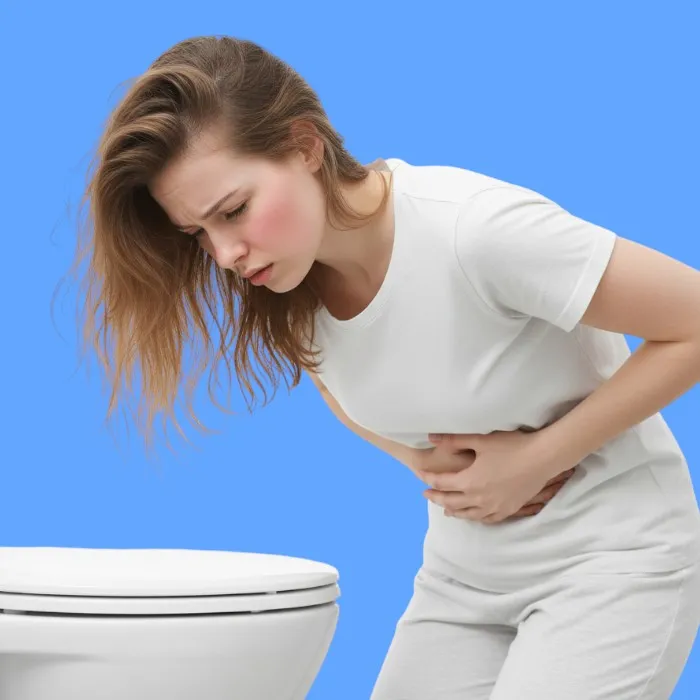What is food poisoning?
Food poisoning is a health condition that occurs as a result of consuming food or drink contaminated with bacteria, viruses, parasites, or toxins.
Symptoms usually appear within hours of eating the contaminated food and can range in severity from mild to severe depending on the type of contaminant and the amount of food consumed.
What are the causes of food poisoning?
There are several common causes of food poisoning, including:
- Eating food contaminated with bacteria such as Salmonella or Escherichia coli (E. coli).
- Consuming undercooked meat or poultry.
- Drinking unclean or contaminated water.
- Eating expired or improperly stored food.
- Not washing hands before preparing or eating food.
- Using dirty or contaminated kitchen utensils.
- Eating food contaminated with fungal or chemical toxins.
- Consuming raw or undercooked seafood.
What are the common symptoms of food poisoning?

There are several common symptoms that a patient may experience, including:
- Nausea and the urge to vomit.
- Frequent or sudden vomiting.
- Watery or bloody diarrhea.
- Abdominal pain and cramps.
- High fever.
- Feeling fatigued and generally weak.
- Loss of appetite.
- Headache or dizziness.
When should you see a doctor?
It is advised to see a doctor immediately if any of the following conditions appear:
- Diarrhea lasting more than three days.
- Blood in stool or vomit.
- High fever (above 38.5°C).
- Signs of dehydration such as dry mouth or reduced urination.
- Feeling dizzy or fainting.
- Difficulty swallowing or breathing.
- Severe abdominal pain that does not subside.
- Symptoms of poisoning after eating seafood or mushrooms.
What are the treatment methods for food poisoning?
There are several ways to treat the condition, including:
- Drinking plenty of fluids to replace lost body fluids.
- Complete rest and avoiding physical exertion.
- Taking oral rehydration solutions (ORS) to prevent dehydration.
- Using anti-nausea or anti-diarrheal medications when needed.
- Avoiding fatty or spicy foods until the condition improves.
- In some cases, doctors may prescribe antibiotics if the cause is bacterial.
- In severe cases, hospitalization may be required for intravenous treatment.
- Continuously monitoring symptoms and contacting a doctor if conditions worsen.
Can food poisoning be cured?
Yes, in most cases, food poisoning can be cured within a few days without complications, especially if symptoms are managed quickly and properly.
However, the recovery speed depends on the type of contaminant, the patient's age, overall health condition, and response to treatment.
What are the prevention tips for food poisoning?
There are several tips to help prevent the disease, including:
- Washing hands thoroughly before and after preparing food.
- Cooking meat, poultry, and fish thoroughly.
- Avoiding raw or undercooked foods.
- Storing food at appropriate temperatures.
- Not leaving food out of the fridge for long periods.
- Washing fruits and vegetables well before eating.
- Using clean kitchen tools designated for each type of food.
- Avoiding food from unreliable sources.
What are the possible complications of food poisoning?
Some complications may occur if treatment is neglected, such as:
- Severe dehydration and fluid loss.
- Kidney or liver disorders.
- Blood poisoning (Sepsis) in severe cases.
- Guillain-Barré syndrome.
- Reactive arthritis.
- Nervous system problems.
- Weakened immunity in children and the elderly.
- Death in very rare cases.
Frequently asked questions about food poisoning
How long do food poisoning symptoms last?
Usually, they last from one to three days depending on the severity.
Can food poisoning be treated at home?
Yes, mild cases can be treated with rest and fluids.
Is milk good for food poisoning?
It's better to avoid milk initially as it may irritate the stomach.
Can food poisoning cause death?
Rarely, but in severe cases, it may lead to serious complications.
Article summary
Food poisoning is a common illness that can affect anyone after consuming contaminated food. Its symptoms are unpleasant but usually resolve within a few days with proper rest and treatment.
Prevention starts in the kitchen, and maintaining hygiene is the first line of defense against this illness.